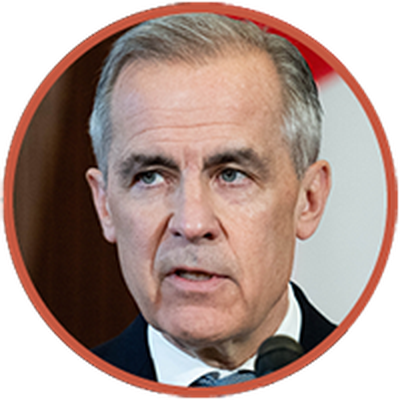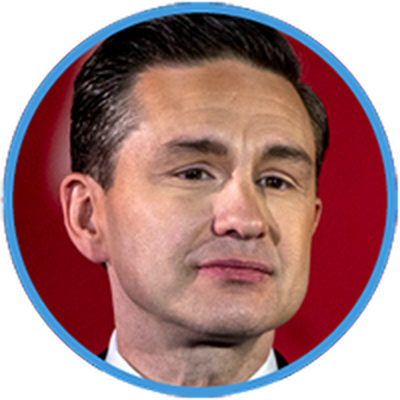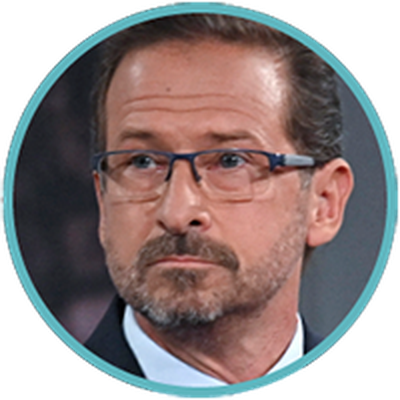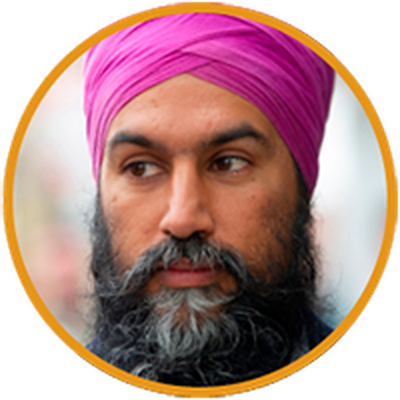Canada’s prime minister and former central banker Mark Carney will on Monday face off in an election against Pierre Poilievre, a career politician whose leadership bid has been tainted by association with US President Donald Trump.
Poilievre’s Conservatives enjoyed a 25-point lead in the polls until long-serving prime minister Justin Trudeau of the Liberal party announced his resignation in January.
What followed was a remarkable turnaround.
In March the Liberal party selected Carney to replace Trudeau, with the new party leader calling a general election shortly after. This combined with tensions with the US — after Trump targeted Canada with tariffs and talked about turning the country into a “51st state” — has propelled the Liberals into the lead, according to the polls.
From facing electoral obliteration at the start of the year, the party is on track to pull off a potentially historic comeback and win the election.
The main candidates
Mark Carney
Prime minister, Leader of the Liberal Party of CANADA

The polling shows Carney has the momentum to win the election. The former Bank of Canada and Bank of England governor has an impressive CV in international finance that includes senior roles at Goldman Sachs and Brookfield Asset Management. He has pitched himself as a stable, experienced leader to contend with Trump. But despite Carney’s recent popularity, Canadians remain wary of another Liberal term after nearly a decade under Trudeau.
Pierre Poilievre
leader of the Conservative party of Canada, leader of the opposition

The career politician, raised in Alberta, was Canada’s most popular politician until Trudeau’s resignation and Trump’s return to the White House. Poilievre has shaken up Canadian politics with a shift to the right and calls to defund the national broadcaster. But his populist “common sense” campaign, which had received endorsements from Trump allies such as Elon Musk, billionaire investor Bill Ackman and podcaster Joe Rogan, has been wrongfooted as Canadians rally against the US president.
Yves-François Blanchet
Leader of the Bloc Québécois

The Bloc Québécois leader, Yves-François Blanchet, faces the difficult balancing act of promoting a French-speaking separatist movement at a time of Canadian national unity. Blanchet was a vital voting partner during Trudeau’s minority government, holding it to ransom on issues such as farming subsidies and pensioner support, but his party has lost vote share to Carney’s Liberals. The movement to achieve independence for the majority French-speaking province of Quebec, which failed at referendums in 1980 and 1995, appears less important to Québécois voters in 2025.
Jagmeet Singh
leader of the New Democratic Party

One of the campaign’s biggest losers has been NDP leader Jagmeet Singh, who is at risk of defeat in his own seat. Singh was a critical partner in Trudeau’s minority government and helped achieve a national dental care programme, expanded access to medicines and improved worker protections. His close ties to the Trudeau government left his party struggling to appeal to voters. He has gained some notoriety for hiring an OnlyFans model to spread his message, only to part ways following controversy over the actor’s videos about the Holocaust.
Latest polls
An important question is whether the Liberals can secure an outright majority in the 338 seats of parliament or if they will have to rely on other parties such as the NDP or Bloc Québécois to pass legislation in a minority government. But it is clear these smaller parties have lost significant support to Carney’s Liberal party.
The Conservative party led the polls for several years but, as voting day approaches, now trail the Liberals.